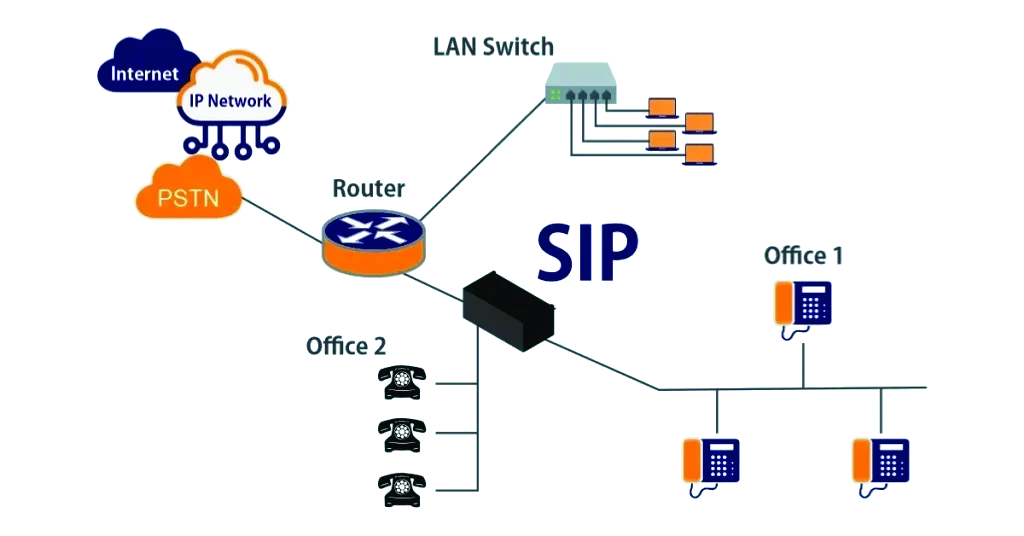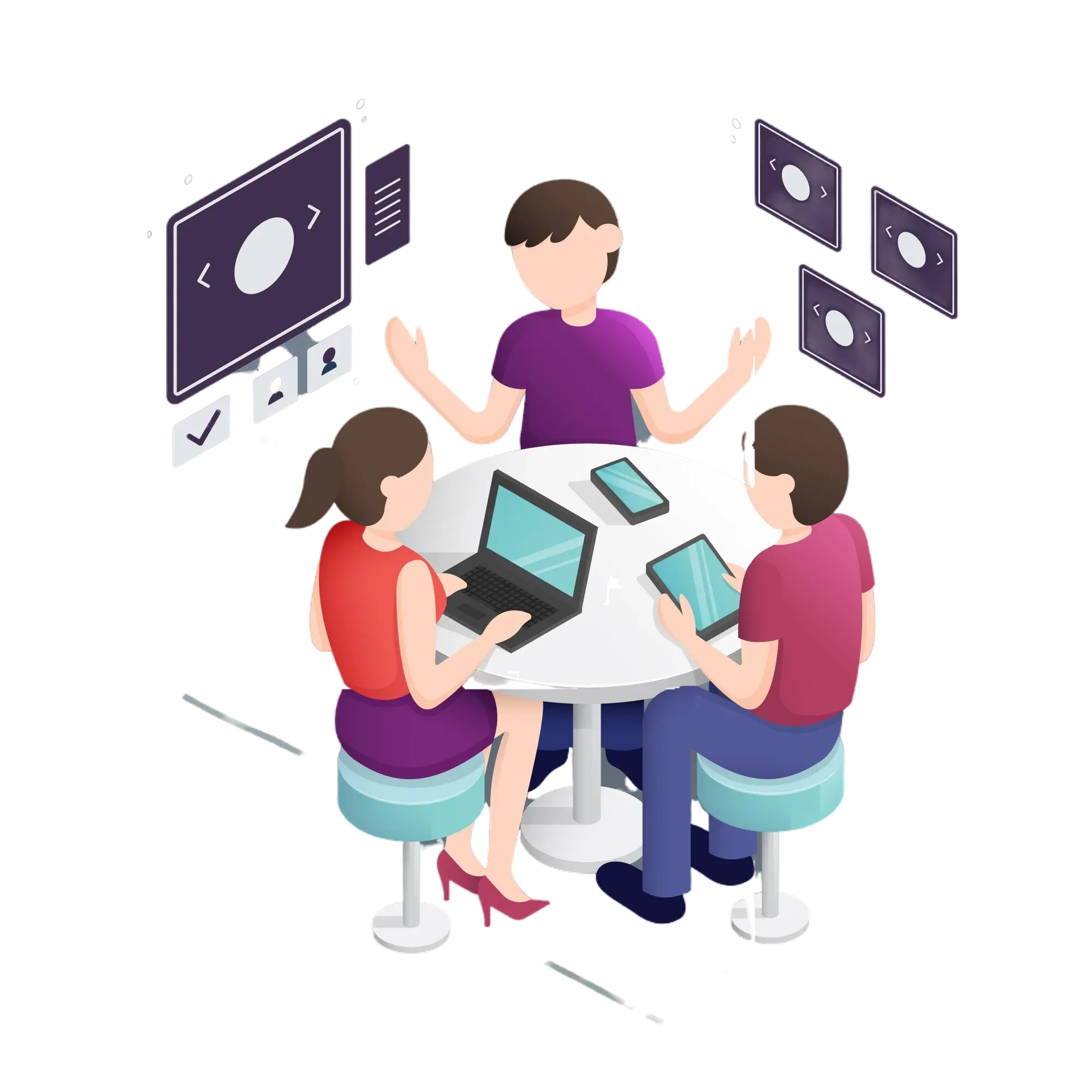In today’s fast-moving digital spectrum, excellent customer service is much more than answering the phone or returning emails. With customers today anticipating seamless, personalized, and consistent interactions across multiple platforms, companies must deliver positive experiences. However, businesses face the challenge of choosing the right contact center strategy to meet these demands. The two primary approaches—omnichannel and multichannel contact centers—often come up in conversations about improving communication and engagement
While both strategies aim to enhance customer experience, they differ in execution and outcomes. This article explores the differences between omnichannel and multichannel contact center strategies, their pros and cons, and how incorporating unified communications, omnichannel contact centers, and working with reliable SIP trunk providers can elevate your approach.
Understanding Multichannel Contact Centers
A multichannel contact center allows customers to reach businesses through different modes of communication, including telephone, email, social networking sites, chat, and SMS. Each channel is discrete, indicating that interactions done on one channel do not have any connection with another.
Key Highlights of the Feature in Multichannel Contact Centers:
Channel Variety: The customer can choose the channel to approach the business.
Independent Operations: Each channel functions separately, with minimal or no data integration.
Ease of Implementation: A multichannel system is easier to set up than an omnichannel approach because it doesn’t require integrated technology.
Advantages of Multichannel Contact Centers:
Offers customers options for communication.
Faster implementation compared to an omnichannel system.
Cost-effective for businesses with limited resources.
Disadvantages of Multichannel Contact Centers:
Lack of integration leads to fragmented customer experiences.
Customers may need to repeat their information when switching between channels.
Limited personalization and continuity across platforms.
Understanding Omnichannel Contact Centers
In contrast, an omni channel contact center would imply that it focuses on offering a cohesive and integrated experience across all customer touchpoints, making customer interactions the same regardless of the channel they select.
Key Features of Omni-Channel Contact Centers:
Integrated Communication: The information is integrated from all channels, so the agent has access to the customer journey history.
Consistent Experience: The customer receives the same level of service across all platforms.
Personalization: It uses customer data for personalized interactions.
Benefits of Omni-Channel Contact Centers:
Offers seamless and consistent customer experience.
Allows agents to visualize each customer’s complete journey for better service quality.
Offers personalization, thus increasing customer satisfaction and loyalty.
It encourages effective collaboration through the usage of unified communication tools.
Disadvantages of Omni-Channel Contact Centers:
Requires massive investment in technology and integration.
More difficult to implement compared to a multichannel system.
Training agents to navigate the unified system can take time.
Omnichannel vs. Multichannel: Which is the Difference?
The main difference between a multichannel and an omnichannel contact center is the presence of integration and continuity.
Multichannel: Offers multiple channels to communicate on; however, they are independent.
Omni-Channel: It provides one platform where all channels are integrated, and the flow of customer data and interactions is smooth.
For example, a customer who emails about an issue in a multichannel system may have to repeat the query if he calls later for support. In an omnichannel system, the agent on call would already have access to the customer’s email interaction and thus could continue the conversation without requiring the customer to repeat himself.
Which Strategy Is Right for You?
Your choice between multichannel and omnichannel contact center strategies depends on your goals, budget, and customer expectations.
Multichannel is ideal if:
Your business is just beginning to implement customer support systems.
You want to provide multiple means for customer communication without heavily investing in each option.
You’re catering to customers who prioritize speed over personalization.
Omni-Channel Is Ideal For:
You are after highly personalized and seamless customer experiences.
You want to integrate customer data across all channels for better service.
Your business puts customer loyalty and retention above everything.
The Role of Unified Communications within Contact Centers
Unified communication means putting various voice, video, messaging, and collaboration tools in one system. This element is present in multichannel and omnichannel contact centers as it permits fluid communication and information sharing.
Benefits of UC in Contact Centers:
Improves agent productivity by having access to all communication tools in one platform.
Allows teams to collaborate in real-time, hence fastening the resolution process.
Improves customer experience by minimizing delays and maintaining continuity.
Allows remote or hybrid working for customer support teams.
With unified communications, agents can efficiently and without context loss switch between different channels in the omnichannel contact center, thereby increasing the advantage of integrations.
How SIP Trunk Providers Amplify Contact Centre Strategies
Reliable SIP trunk providers have always been necessary in multichannel or omnichannel contact centers. SIP or Session Initiation Protocol trunking is a protocol that allows firms to make or receive voice calls over the internet without using regular phone lines.
SIP Trunk Providers: Benefits
Cost Efficiency: It allows the economical use of calls, mainly in international communication, through SIP trunking.
Scalability: Add or remove channels to your liking as the need arises in your business.
Reliability: Ensures communication without interruption by providing mechanisms of failover.
Flexibility: Enables your organization to go ahead and plug voice calls into the software of unified communication.
In an omnichannel contact center, SIP trunk providers enable voice to be available without glitches and complement other channels, such as chat and email, for a truly integrated experience.
Best Practices for Selecting and Implementing Your Contact Center Strategy
Know the Audience: Consider the preferred platforms your customers use to communicate and what kind of service they expect.
Assess Your Resources: Consider your budget, team size, and technological capabilities.
Keep Attention on Scalability: Whether multichannel or omnichannel, ensure the system scales with your business.
Integrate UC: Invest in UC tools to increase collaboration and manage communication.
Partner with Reliable SIP Trunking Providers: Choose a tested service provider that guarantees reliability in voice communication at an affordable cost.
Conclusion: How to Find the Right Strategy for Your Business
Whether you build an omnichannel or a multichannel depends on your business goals and customer needs. Where multichannel systems give you simplicity and cost efficiency, an omnichannel contact center gives you rich, frictionless customer experiences that today’s customers are coming to expect and even demand.
Whichever route you take, adding unified communications and partnering with reliable SIP trunk providers will increase your contact center’s efficiency, scalability, and customer satisfaction.
Understanding the differences in strategies, coupled with the proper tooling and partnerships, will provide the business with a contact center that drives growth, loyalty, and excellent customer experiences.
Ready to transform the Contact Center Strategy? Your teams and customers will thank you in droves for a more connected and smooth experience.
About The Author: Telerain, your trusted partner in streamlined digital business communication solutions. Our integrated cloud software service combines a comprehensive suite of channels, including voice, SMS, fax, video, chat, and email, ensuring your business stays connected most efficiently and securely.
At Telerain, we prioritize the security and compliance of your communications. Our platform automatically addresses GDPR, PCI DSS, and HIPAA regulations, guaranteeing that all interactions are recorded and archived compliantly. It means you can focus on your business, confident that your communications meet the highest data protection and privacy standards.
Our user-friendly per-user-per-month Software as a Service (SaaS) model ensures flexibility without the burden of legacy technology costs and complexities.





